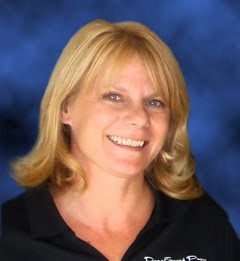3 Indispensable Tips for Authors with ADD/ADHD
For many years I tried and tried to write a book. No matter
how committed and determined I was in the beginning, I soon found myself
distracted and onto something else leaving unfinished novels scattered about my
desk, stuffed in drawers, and carpeting the bottom of numerous closets. I have
Attention Deficit Hyperactivity Disorder (ADHD), which means I get distracted
by bright, shiny objects, or almost anything else, easier than most people.
I cannot remember where I picked up the following tips, but
without them I am certain I would have never been able to finish my first book,
which means I wouldn’t have completed my second or third either. If you have
ADD/ADHD or just find it hard to get that novel inside of you onto paper, take
heart and read on.
The first tip is to know the ending before you begin to
write. I realize many successful authors don’t know where their story is going
or how it will end, but for me and my wandering mind, I needed to know the
ending and it had to be exciting enough to hold my interest throughout the
entire book.
My problem with writing fiction isn’t trying to think up
plot twists and conflicts to include. My dilemma is what to leave out. I have
to remind myself to ignore the hundreds of ideas hammering and yammering to sneak
into my story.
Now I’m not suggesting you need to outline everything that
happens in your story and plot the entire book before you begin, but if you are
ADD/ADHD, try at least to know the ending.
Think of it as a road trip –I love road trips— let’s say we’re
driving from Phoenix to Washington, DC. As long as we keep heading east and
north, we’re going to get there eventually, and we can stop along the way and
see the world’s biggest ball of string, maybe visit Graceland, and even board a
paddle boat on the Mississippi River in honor of Mark Twain.
If we didn’t know we were heading for D.C. We may have
already been to Disney, maybe on up to Maine to check out Stephen King’s
stomping grounds, or perhaps decide to cruise across the Atlantic and visit the
castles of Europe. (We’ll assume we have an unlimited checking account, or won
the lottery, or a rich aunt left us a huge inheritance, or – see what I mean? I
need to know what to leave OUT.)
Many of those trips would most likely lead us down dark
alleys or leave us stranded alongside of the road, or drifting in the ocean
with no idea how to get going again. My point is, we never would have made it
to our nation’s capital, and we would probably run out of gas in the middle of
nowhere.
Although I have to know where I’m going with my story, I
don’t want to be so boxed in and tied down to a full-blown outline where I
can’t explore and have some fun along the way, which is why I prefer road trips
to flying.
The knowing keeps me focused, but it’s the unknown that
holds my interest as I puzzle out how to get from here to there. That’s the kind
of challenge I enjoy. Foreshadowing and clues aren’t just dropped into the
story. Instead, they develop organically as part of the plot, creating – as one
of my readers graciously said – a sneaky, clever ending.
The second tip I received was to set a deadline, actually
two deadlines; one for the first draft and another for the final manuscript. Of
the two, I think the second is the toughest to meet. We usually know when our
story is over, but I don’t believe there is a defined end
to the editing process. Every time I reread the story or, ask someone else to
proofread or critique it, I discover changes to make.
With my books, I chose my children’s birthdays as my final
deadlines. I worked hard to make the stories the best I could right up until
that day. Otherwise, I’d either still be editing the life out of the books or,
more likely, I would have grown bored and moved onto something else and they’d
never have been published.
Are my books perfect? No, but it’s okay; remember I have
ADHD not OCD and I can live with having written an exciting, readable story
with a few commas out of place.
By far, the best tip for me was to get a button chair. I
wish I could remember where I first read about the button chair. Every writer
needs one. In fact, it’s impossible to become an author without it. You can
write, albeit slower, without a laptop. You can write without an office – J.K.
Rowling used a coffee shop. You can even write without joining a writing group
(although, a good group – such as RWA— may help you become a better writer). You
can’t write without a butt-in-chair.
I’ll leave you with the good news for the ADD/ADHD author: When
you do finally finish a book that can hold your
shifting interest, you already know it’s going to keep your readers’ attention until the very last
page.

